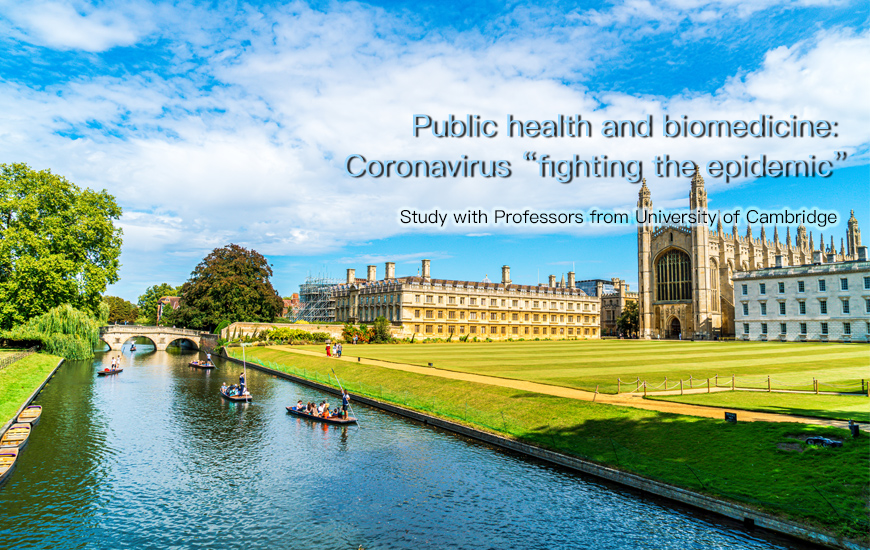Public health and biomedicine: Coronavirus “fighting the epidemic” - Study with Professors from University of Cambridge & University of Oxford


By the beginning of 2020, a smokeless battle has already begun. The battle against the epidemic is not only against the novel coronavirus but also against the widespread propaganda circulated by the media. Families are in lockdown as the death toll continues to increase. What is a coronavirus? What kind of infectious disease is this? How to protect yourself? The answers to these questions will be answered one by one in the project.
Under the guidance of professors from famous overseas universities, the program aims to help students build their knowledge of public health and biomedicine, especially coronavirus, and comprehensively improve their ability to solve practical problems, so as to lay a solid foundation for future studies and job applications.
In this project, students will learn about public health and general preventive medicine; the definition, types and causes of infectious diseases; the coronavirus outbreak; infection and immune response. At the end of the project, students will use these skills to solve real-world problems, submit their project reports, and demonstrate results.Suggested Future Research Fields:
High school/College students
Suitable for students of marketing, advertising, media, digital media, communication, sociology or for those students who want to study related majors.

BSc, MSc, PhD, FASTMH
PROFESSOR OF MALARIOLOGY
Head of Eijkman Oxford Clinical Research Unit
About
Kevin Baird is the Head of Eijkman-Oxford Clinical Research Unit in Jakarta, Indonesia, and Professor of Malariology, Nuffield Department of Medicine, University of Oxford. He earned a B.Sc. in Microbiology, M.Sc. in Biochemistry from University of Maryland, and a Ph.D. in Medical Zoology from Tulane University. He has long focused on Plasmodium vivax malaria, in particular on the problems of G6PD deficiency and cytochrome P-450 2D6 pharmacogenetics regarding the toxicity and efficacy of primaquine therapy against relapse of that species. His laboratory undertakes clinical trials of therapies against relapse of P. vivax, principally in Indonesian soldiers but also in village settings, in addition to laboratory and field studies of G6PD deficiency biochemistry, diagnostics, and epidemiology.
Interests
University of Oxford (Oxford for short), located in Oxford, England, is the world's leading public research University, using college federalism.
The exact date of the university's founding is unknown, but the earliest documented date for teaching is 1096, and it grew rapidly in 1167, thanks to the support of the English royal family. The University of Oxford is the oldest university in the English-speaking world and the second oldest surviving institution of higher education in the world. The university has produced a number of epoch-leading scientific masters and trained a large number of epoch-making art masters and heads of state, including 28 British prime ministers and dozens of heads of state and political and business leaders around the world. The University of Oxford has a lofty academic status and extensive influence in mathematics, physics, medicine, law, business and other fields, and is recognized as one of the world's top institutions of higher education. Since 1902, Oxford University has also established rhodes Scholarships for undergraduates from all over the world. As of March 2019, there are 72 Nobel Prize winners (ninth in the world), 3 Fields Medal winners (20th in the world) and 6 Turing Prize winners (ninth in the world) among Oxford's alumni, professors and researchers.
The University of Oxford is ranked 1st in the world in 2019-20 by the QS World University Rankings, 4th in the World in 2020USNews World University Rankings, 5th in the world in 2019 Academic Rankings, 7th in the World in 2019 Times Higher Education World University Reputation Rankings. In particular, THE University of Oxford has been ranked number one in THE world for THE fourth consecutive year in 2017-20 in THE World University Rankings.
For more information, please contact us.

